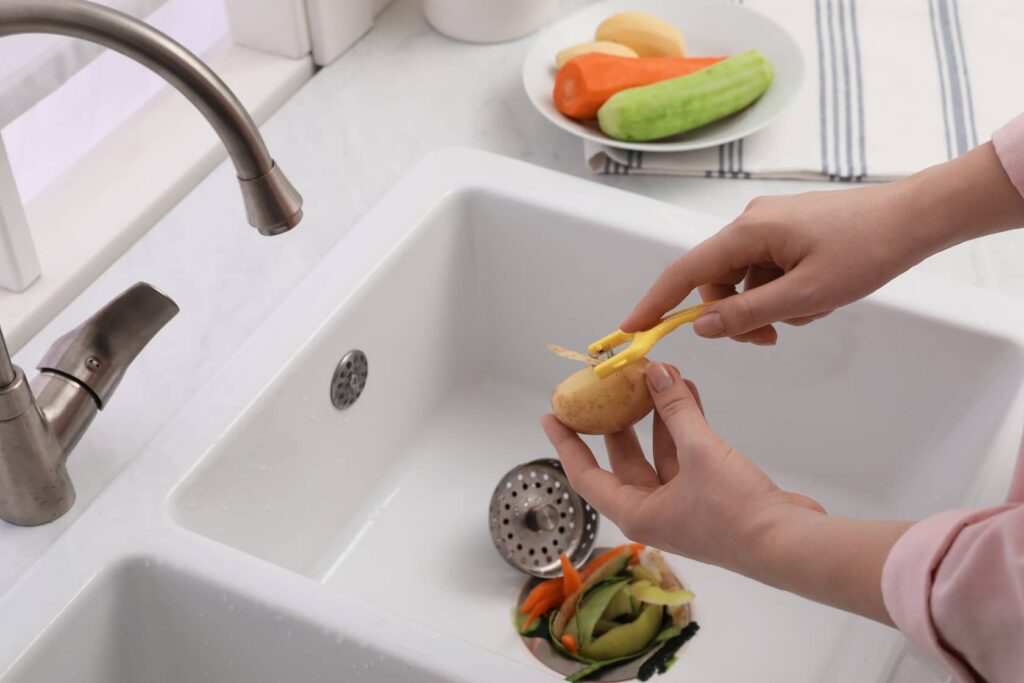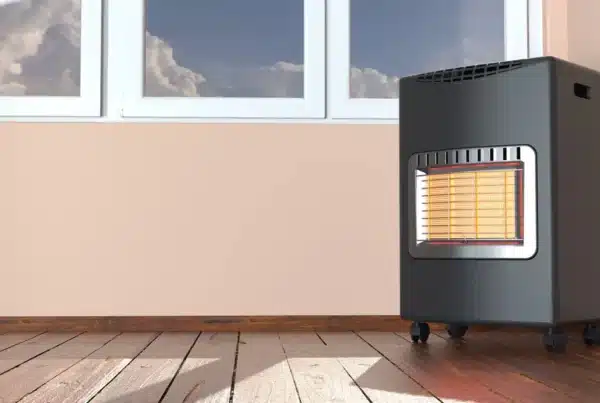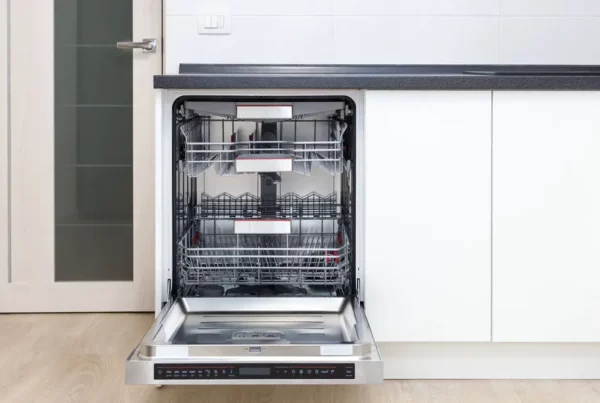
There are a lot of luxuries in a home. Things such as an updated kitchen, a high quality refrigerator, nice flooring and the list goes on. Another one is a garbage disposal. A garbage disposal is an electrically powered device typically installed under a kitchen sink between the sink’s drain and the trap. It shreds food waste into pieces small enough—generally less than 2 millimeters—to pass through plumbing safely and efficiently. In this article, you will learn why people have a garbage disposal, what you can put down a garbage disposal and what you can’t, as well as maintenance.
Let’s learn more!
Why Do People Have a Garbage Disposal?
There are several reasons why people have a garbage disposal. These are:
- Convenience: Garbage disposals offer a quick way to dispose of food waste without needing to store it in a trash can until garbage day.
- Reduced Waste: By grinding food scraps and flushing them into the sewage system, households can reduce the amount of solid waste that ends up in landfills.
- Hygiene: When food waste is disposed of quickly and effectively, it minimizes the risk of bacteria and odor in the kitchen, contributing to a cleaner and more hygienic environment.
- Environmental Considerations: Garbage disposals help to convert food waste into energy or compost by sending it to wastewater treatment plants where it can be processed accordingly, which can be more environmentally friendly than traditional disposal methods.
- Economy: Utilizing a garbage disposal can potentially save a municipality on the costs associated with solid waste collection and disposal.

What You Can Put Down a Garbage Disposal?
Now that you know why people have a garbage disposal, it is important to know what you can put down them. Items that are generally safe to put down your disposal include:
- Fruits and Vegetables: Soft scraps of fruits and vegetables can be ground easily.
- Cooked Meat Scraps: Smaller chunks of cooked meat are acceptable. However, they should be limited in quantity to avoid overworking the unit.
- Citrus Rinds: Small amounts of citrus rinds can freshen up your disposal and help clean the blades with their rough texture.
Foods You Cannot Put Down a Garbage Disposal
Certain items should never be placed in garbage disposal:
- Oil and Grease: These can solidify inside pipes and create blockages.
- Pasta and Rice: They expand with water and can clog the disposal and pipes.
- Bones: Hard bones from meat or fish cannot be adequately processed by most disposals.
- Peels and Skins: bananas, potato, and onion – Stringy fibers that make-up fruit and vegetable peels are bad for the blades in the disposal. The stringy peels can often clog the disposal.
- Non-Food Items: Never attempt to grind paper, plastic, or metal as they can damage the disposal.

Maintenance for Garbage Disposals
To maintain your garbage disposal, you need to regularly run cold water through the disposal for several seconds before and after grinding food. Also, when cleaning, use biodegradable cleaning agents designed for disposal. To sharpen and clean the blade, you will need to frequently grind lemon peels or ice cubes. Lastly, avoid using harsh chemicals like bleach or drain cleaners, which can damage the disposal.
Preventative Maintenance for Garbage Disposal and Sink
Now that you know what you can put down a garbage disposal, it is a good idea to look at some other things that might happen with garbage disposals. Hopefully, these will help you fix any problems you may be having.
One of those is the garbage disposal is humming. This may happen due to a clog in the motor, the GFCI has tripped, or a faulty motor. If you aren’t sure how to fix it, contact a professional.
Another is how long garbage disposals last. The good news is they last about 10-15 years with proper maintenance. You want to make sure you get one that is good quality, putting in the right foods, and also not overusing it.
Lastly, the garbage disposal is part of the sink and sometimes the sink may leak water. This happens when there is a leak at the faucet, worn-out putty on the drain, loose water supply connection, or P-trap is clogged to name a few.
When to Call a Professional?
Garbage disposals can be difficult to fix on your own and you may need to call a professional. This may be necessary if the unit does not turn on or makes humming sounds without grinding. Also, if there are persistent odors that cleaning won’t eliminate. Additionally, if you encounter leaks under the sink from the disposal unit. Lastly, if the disposal frequently jams or clogs, despite correct use.
Conclusion
Understanding what a garbage disposal can handle and how to maintain it will ensure its longevity and efficient performance. Always err on the side of caution with what you place in your disposal. Also, perform regular maintenance, and don’t hesitate to call a professional when more serious issues arise. While you are taking care of the garbage disposal, this is a great time to reach out to us. Call Waypoint Property Inspection to inspect your home in Tampa, St. Petersburg, Lakeland, Orlando, Palm Beach, Ft. Lauderdale, and surrounding areas.



